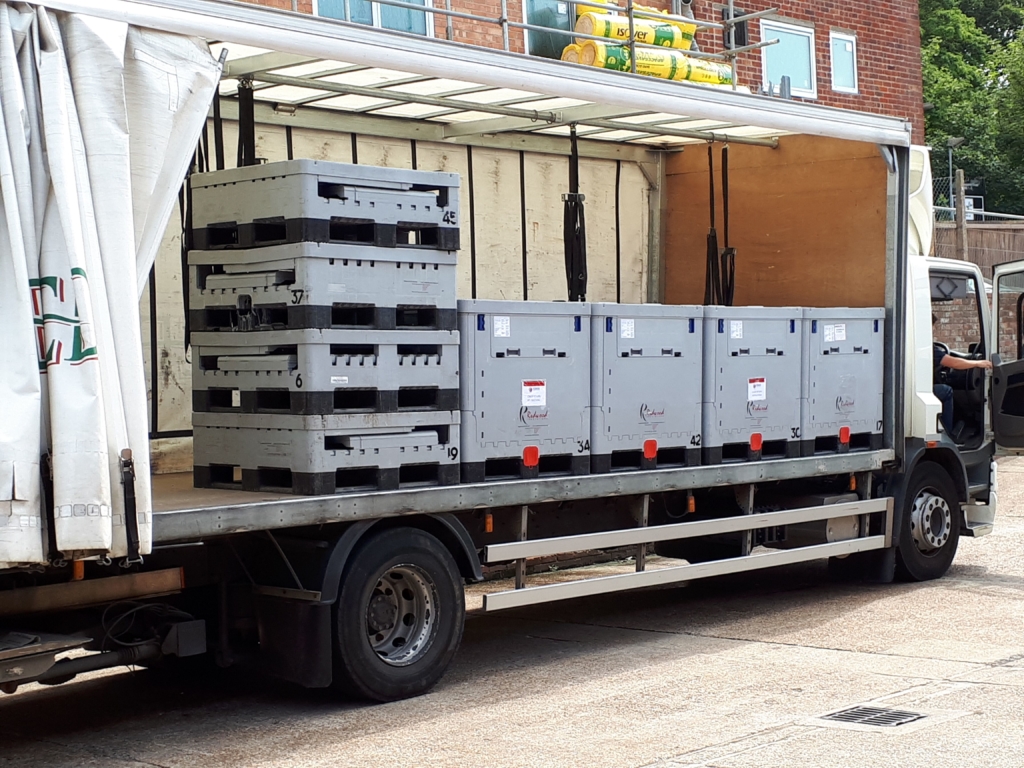Ways to go eco-friendly in your workshop

It’s 2021, and climate change is at the top of everyone’s agenda.
Over the past decade, we’ve seen European weather patterns shifting almost before our eyes, with corresponding increases in the incidence of forest fire, floods, and other nastiness believed to be anthropogenic in origin.
‘Anthropogenic’ means ‘arising from human activity’. Forestry is a human activity that’s strongly implicated in climate change, and much of Redwood’s customer base works with timber products.
That being so, implementing some eco-friendly measures in your workshop will do your public profile no end of good…and it might make a significant difference to the planet, too!
Here are some tried-and-tested ways you can help.
Change your working patterns
A couple of decades ago, a famous TV ad campaign called on viewers to change their behaviour in small ways: switching off unnecessary lights; boiling only enough water for their one-cup brewup…that’s still good advice, but those of us who operate workshops full of power tools can go further.
How might you reduce the energy footprint of your business? Piecemeal changes can make a big difference. For instance, you might install movement-activated lighting in place of manual switching, or provide staff with resources that support them in choosing hand sanding over default belt sanders. (If you opt for the hand finishing option, Redwood can provide the necessary specialist abrasives.)
We’ve even seen workshops where solar-powered LED task lighting enables a small but significant reduction in power consumption!
Rethink your supply
As that last point suggests, power is the achilles heel of small workshops. Householders are beginning to switch to green energy suppliers, so why not craft practitioners?
By moving your workshop to a wind or solar energy provider – or even switching tariffs with your existing supplier – you can show your support for responsible electricity generation.
Given the prevailing downward trend in green energy prices, you might even end up saving yourself money!
Switch timbers
While the long-running debate about responsibly-sourced timber is distinct from wider concerns about deforestation, the two campaigns share common ground…and there’s much to be learned from the history of exotic timbers.
In the specialised world of guitar construction, there’s a growing recognition of the damage that was inflicted on forest ecologies in the last century by loggers in search of desirable hardwoods like mahogany, rosewood and ebony…and a corresponding switch to sustainable alternatives like sapele and Indian laurel.
There are signs that the same concerns are beginning to affect consumer choices in furniture and decor. That being so, wouldn’t this be a great moment to rethink your timber sourcing?
Use reclaimed material
Of course, the logical conclusion of a rethink on sourcing would be to switch at least part of your production to reclaimed wood.
At Redwood, we’ve kept a close eye on the development of this novel market, and we’ve enjoyed supporting the designers who are using specialist dyes and finishes to repurpose 19th century timbers for 21st century consumers.
If you read our last blog post, you’ll know that we’ve seen beautiful interiors created from old rowboats, from the innards of a Victorian lighthouse, and, in an extreme case, from old-growth timbers recovered from the anaerobic sediments at the bottom of a swamp.”Let your imagination run riot!
Eco Crates
Of course, a switch to reclaimed materials might be too radical for your enterprise. If that’s the case, can we suggest that you deploy Redwood’s Eco Crates?
To understand why Eco Crates are so significant, you need to take a long view of the development of PVA adhesives. After they were first synthesized just over a century ago, PVAs were rapidly adopted throughout the print and furniture industries. In fact, they were used in such quantities that suppliers took to making deliveries in intermediate bulk containers (IBCs), palletised plastic containers.
IBCs are handy for suppliers and users alike, but they encourage waste, both of expensive PVA and of the oil by-products used in the manufacture of the containers. Redwood’s Eco Crates provide a practical low-waste alternative. They’re stackable crates that provide the same convenience as IBCs, but that are fully reusable. Their ease of handling encourages users to get every last bit of PVA out…and, once emptied, they can be folded to a quarter of their delivered size.
The best part is that we’ll collect them for you free or charge and then use them again for your next order.
We hope we’ve given you some interesting ideas that will help make your workshop more eco-friendly. If you apply them to your business – or come up with better alternatives of your own – do let us know.
